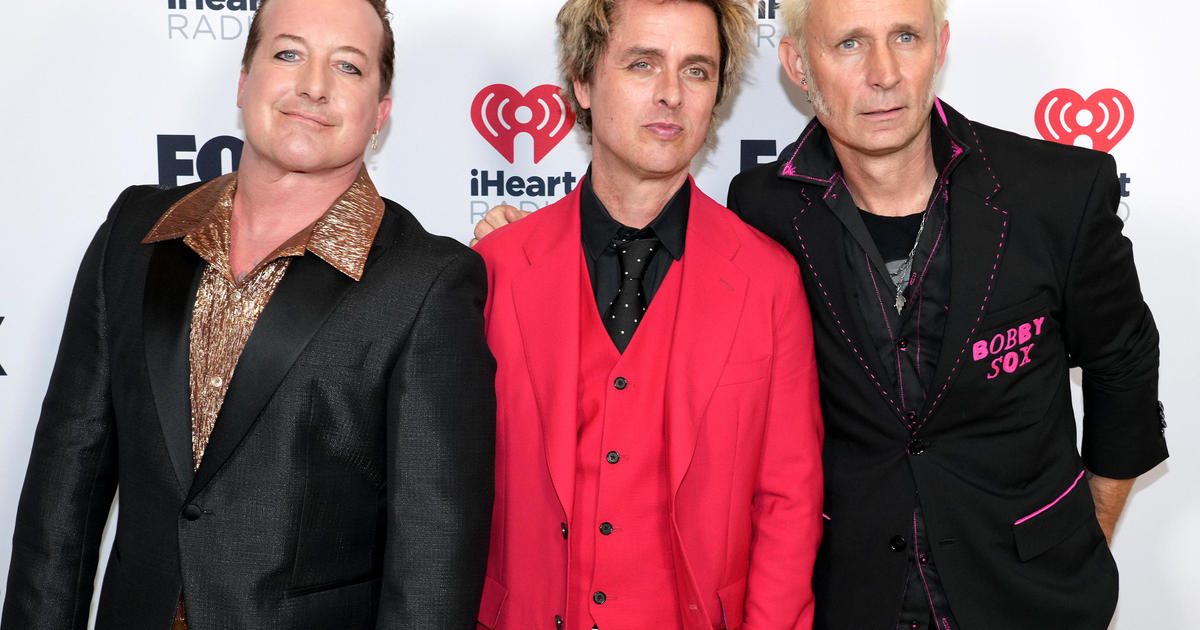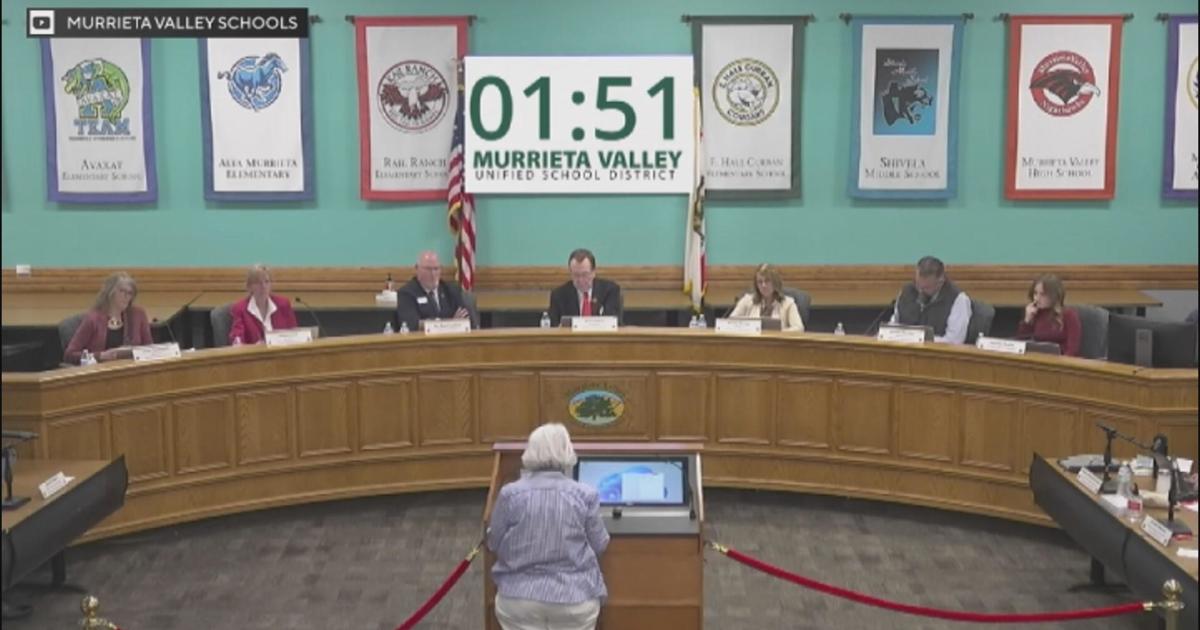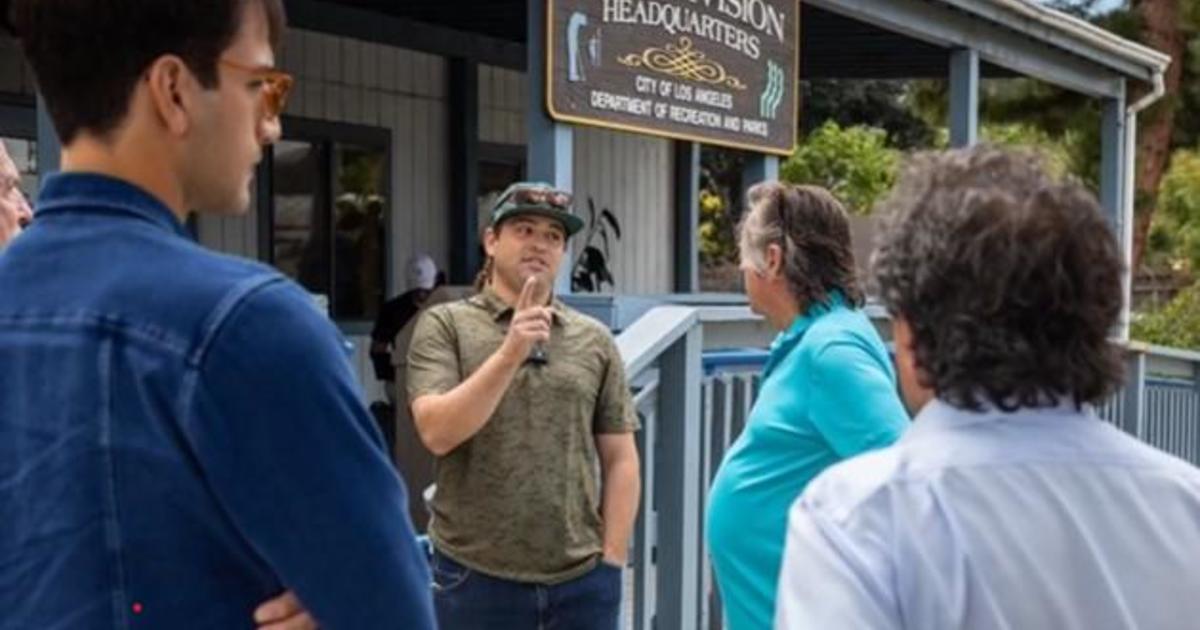Jerry Brown Reinvents Himself As Elder Statesman
SACRAMENTO (AP) — Jerry Brown sees himself as a regular guy who buys his suits on sale, drives around in a Ford Crown Victoria and enjoys dinner at home with his wife. What he wants Californians to see past is the Jerry Brown of three decades ago who was derisively dubbed "Governor Moonbeam."
The 72-year-old Democrat, locked in a close race with Republican Meg Whitman for governor, is determined to project an everyman image, a far cry from the eccentric Californian who romanced singer Linda Ronstadt along with a few other Hollywood actresses, recited poetry on the campaign trail and moved to Japan to study in a Buddhist monastery.
Brown faces businesswoman and political novice Whitman, the billionaire former head of eBay who has spent more than $121 million of her own money in her bid to lead the nation's most populous state, which has been wracked by ongoing budget crises.
He has worked to transform his image into that of a feisty senior statesman whose only political ambition is to help his beloved state, where a persistent gloom hangs over its 38.6 million, recession-weary residents.
The floppy-haired bachelor remembered by an older generation of voters is beyond the age when most people retire. He married five years ago, and what hair he has left is close-cropped and silver, presenting a much different image to a new generation who knows little if anything about his previous political lives.
Brown has tried to portray his many years on the public stage as his greatest asset, saying he can tap his deep government experience to guide California through a recession that has left the state with crushing unemployment, a devastated housing market and a state budget crisis so acute that teachers are being laid off and domestic violence shelters closed.
His credentials now include time as a tough-on-crime attorney general and former mayor of Oakland, one of California's most crime-ridden cities.
"He is essentially the same person I knew back in the '70s, but the experiences have tempered him," said former Gov. Gray Davis, who served as Brown's chief of staff. "When he was first in office, I think there was more emphasis on generating ideas and being creative and less concern for the ultimate result. I think that has changed. He wants to get the state back on the right track."
Brown also has married. At age 67, he wed longtime girlfriend Anne Gust, a former corporate counsel for Gap Inc. who has worked at his side at the attorney general's office and in his gubernatorial campaign. She's the reason Brown jokes that he would be a more focused governor in what would be his third term. He was just 36 when elected the second-youngest governor in state history in 1974.
During his first debate with Whitman, he responded to a question about his previous presidential campaigns by saying he no longer harbors such ambitions.
"I now have a wife. I come home at night," Brown quipped. "I don't try to close down the bars of Sacramento like I used to do when I was governor of California. So I'm going to spend more time in Sacramento and I'm going to get it done."
But for as much as Brown seeks to showcase his new statesmanlike persona, he remains an unconventional politician who challenges reporters for asking him questions he doesn't like and occasionally fails to self-censor himself.
In a recent interview with The Associated Press, Brown bristled when asked why, at retirement age, he wanted to return to the governor's office, saying he'd already explained his reasons on the campaign trail and during the first gubernatorial debate. He would be California's oldest governor if elected.
"I'll repeat my lines verbatim if you want," Brown said. "I can make up a different reason, but it won't be the reason I was thinking of."
When asked how he would be a different governor than three decades ago, he quipped, "Do you know what it was like the first time?"
He eventually answered the questions, saying he is more thoughtful, knows how to respect lawmakers and can bring his government experience from the local and state level to get California back on track.
On several occasions this year, Brown has found himself in trouble for often speaking too freely or departing from his campaign themes.
Last summer, when he chatted with a radio reporter he met on a jogging path, Brown compared Republican Meg Whitman's multimillion dollar advertising campaign to Nazi propaganda in a conversation he thought was off the record. He apologized after the comments appeared on the station's blog and said, half-jokingly, that it was the last time he would chat up a reporter during a workout.
After Whitman began running an attack ad that featured a debate between Brown and former President Bill Clinton, Brown was caught at an informal campaign event on a handheld video recorder criticizing Clinton and his affair with former White House intern Monica Lewinsky. Clinton, a rival in the 1992 presidential primary, quickly forgave Brown and endorsed him.
"When you spend 40 years in politics, it's hard to break old habits," said Sherry Bebitch Jeffe, a political science professor at the University of Southern California.
While Brown tries to promote himself as an older, wiser candidate than three decades ago, he frequently recalls his first tenure in the governor's office to remind voters of his frugality. He has held fundraisers showcasing the 1974 Plymouth Satellite he drove around Sacramento after ditching the governor's limousine and invited donors to the modest Sacramento apartment he used instead of the governor's mansion.
He even has turned what once was a liability -- the infamous nickname -- into something of a badge of honor. A Chicago newspaper columnist coined the "Moonbeam" name (later saying he regretted it) after Brown proposed launching communication satellites into space. The name, Brown says now, reflects his creative thinking.
He embraces his Californian heritage, often referencing his father, the late Gov. Pat Brown, who presided over what many believe was the state's golden era of expansion. It included construction of the state's extensive water system and building the higher education system into one recognized around the world.
Brown says he can identify with the average Californian because he grew up in the state, as opposed to Whitman, a native of Long Island who has revealed little of her personal side since formally announcing her candidacy a year ago.
He routinely references his long ties with Hispanic farmworkers, most notably his march with Cesar Chavez for farmworker rights.
At a Democratic rally in Santa Rosa this August, Brown recounted swinging from the Hacienda Bridge over the Russian River as a boy and decades later returning to float down the river in a canoe on his honeymoon.
In Sacramento, he recounted for the newspaper's editorial board how his great-grandfather drove the stage coach from the gold mining town of Placerville to the state capital and his part ownership of land his family claimed in the 1850s, shortly after statehood.
"I care a great deal about public service," Brown said during the first gubernatorial debate, emphasizing his deep roots in California. "I love it and I've voted here all my life, and God willing I'll spend the rest of my life and die in this state."
(© Copyright 2010 The Associated Press. All Rights Reserved. This material may not be published, broadcast, rewritten or redistributed.)



